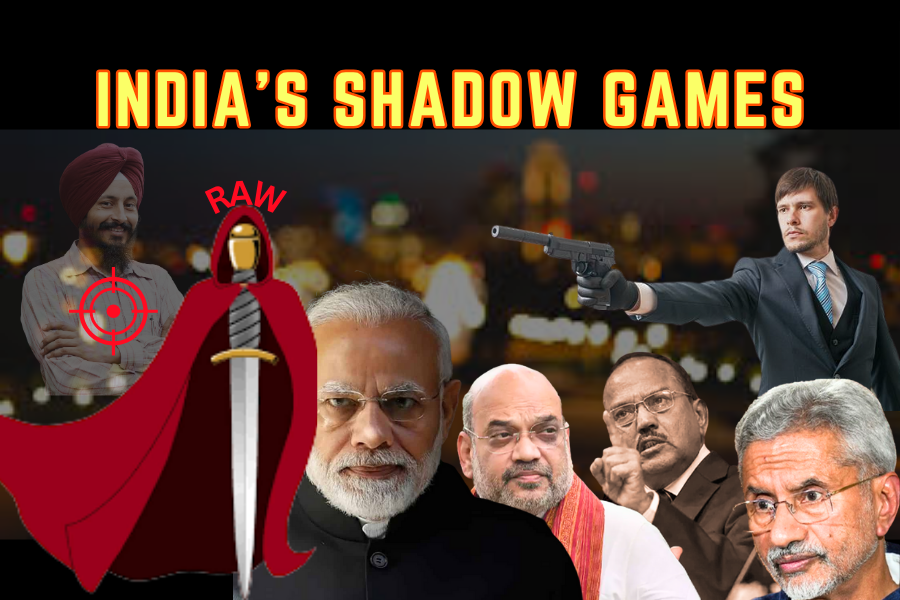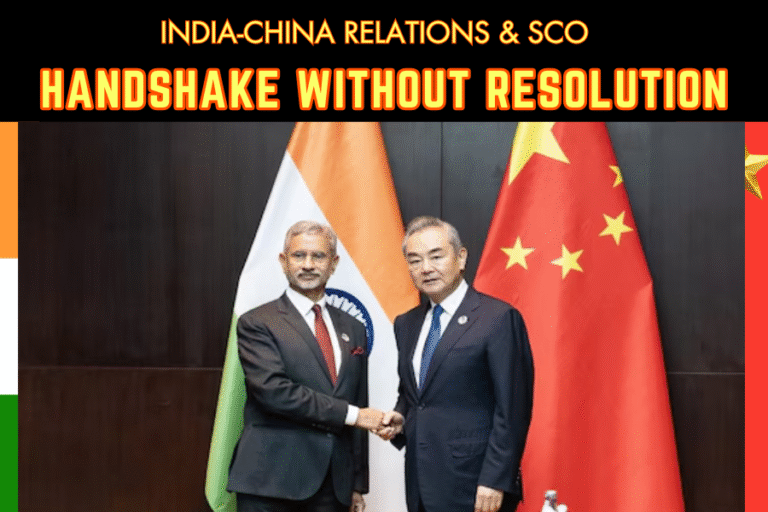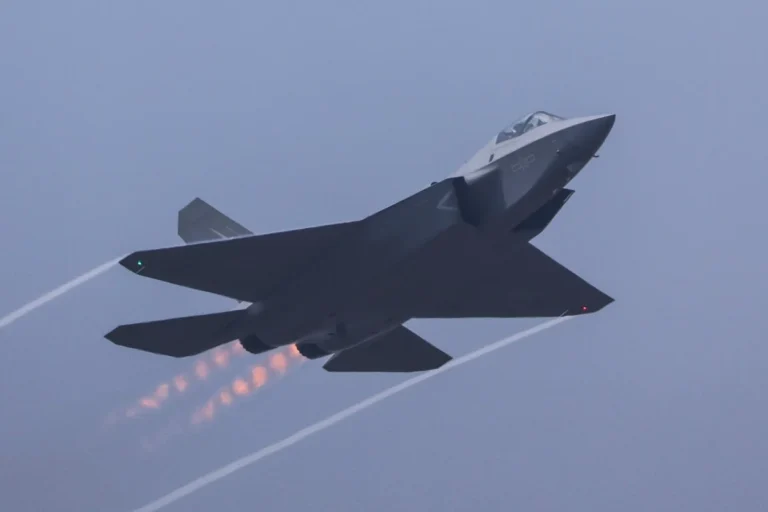(By Khalid Masood)
On 18 June 2025, the Canadian Security Intelligence Service (CSIS) released a damning report accusing India of orchestrating foreign interference and transnational repression, including the 2023 assassination of Sikh activist Hardeep Singh Nijjar in British Columbia. This revelation, coupled with allegations of a thwarted plot against Gurpatwant Singh Pannun in the United States and a string of targeted killings of Kashmiri activists in Pakistan, exposes a chilling pattern of India’s meddling in the affairs of sovereign nations. This article dissects India’s covert operations, drawing on recent evidence to argue that New Delhi’s reckless interference—driven by Hindu nationalist zeal—threatens global norms and regional stability, demanding urgent international scrutiny.
I. The CSIS Report: A Spotlight on India’s Transgressions
The CSIS’s 2024 annual report, tabled in Parliament on 18 June 2025, marks a seismic shift in Canada’s stance, naming India as a key perpetrator of foreign interference. The report accuses Indian officials and their Canada-based proxies of engaging in “clandestine, deceptive, or threatening” activities to align Canadian policies with New Delhi’s interests, particularly to suppress the Khalistan movement, which seeks an independent Sikh homeland. Most alarmingly, it links Indian agents to the “gangland-style” murder of Hardeep Singh Nijjar, a Canadian citizen gunned down outside a Sikh temple in Surrey, British Columbia, on 18 June 2023, labelling it a “significant escalation” in India’s repression efforts.
The report details how India leverages ethnic and religious communities to influence Canadian politicians and public discourse, employing tactics from disinformation to coercion. It notes that the Royal Canadian Mounted Police (RCMP) identified over a dozen threats to Sikh activists, with Nijjar’s killing as a stark example of India’s intent to target dissidents in North America. These findings, released a day after Canadian Prime Minister Mark Carney shook hands with Indian Prime Minister Narendra Modi at the G7 Summit in Alberta, sparked outrage among Sikh communities, who decried the prioritisation of trade over justice.
India’s Ministry of External Affairs dismissed the allegations as “absurd” and accused Canada of interfering in India’s affairs by harbouring Khalistani “terrorists.” Yet, the CSIS’s expanded scope—unlike its 2023 report, which barely mentioned India—lends credibility to claims of New Delhi’s systematic interference, corroborated by Canada’s expulsion of six Indian diplomats in 2024, including High Commissioner Sanjay Verma, over Nijjar’s murder.
II. Nijjar’s Assassination: A Brazen Act of Transnational Repression
Hardeep Singh Nijjar, a prominent advocate for Khalistan and chief of the banned Khalistan Tiger Force, was assassinated in a targeted shooting, sparking a diplomatic firestorm. Former Canadian Prime Minister Justin Trudeau’s September 2023 accusation of Indian involvement, backed by U.S. intelligence from the Five Eyes alliance, cited intercepted communications of Indian diplomats in Canada. Four Indian nationals have been charged, and the RCMP alleges the plot was orchestrated by India’s “highest levels,” a charge New Delhi denies.
The CSIS report frames Nijjar’s killing as part of India’s broader campaign to crush Khalistani activism, which Modi’s government views as a national security threat. The Public Inquiry into Foreign Interference (PIFI), led by Judge Marie-Josée Hogue, further revealed India as the second-most active state in electoral interference after China, funding Canadian politicians and spreading disinformation to counter Sikh advocacy. While India claims Nijjar was a terrorist, Canada distinguishes between “legitimate” Khalistani campaigning and extremism, underscoring that only a small group engages in violence.
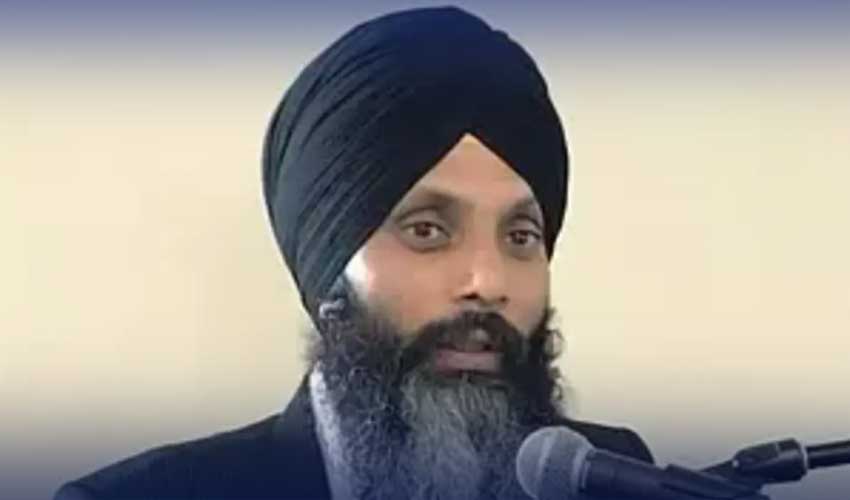
For the rest of the world, Nijjar’s murder resonates deeply, reflecting India’s disregard for sovereignty. The brazen act, executed on Canadian soil, mirrors tactics Pakistan has long accused India of employing against Kashmiri activists within its borders, raising fears of unchecked Indian aggression.
III. The Pannun Plot: India’s Reach into the United States
In November 2023, the U.S. Department of Justice unsealed an indictment detailing a foiled assassination attempt on Gurpatwant Singh Pannun, a dual U.S.–Canadian citizen and Sikhs for Justice leader, in New York. The plot, allegedly orchestrated by an Indian agent, involved recruiting a hitman—unwittingly an FBI informant—for $100,000. Pannun, a vocal Khalistani advocate, was targeted as part of India’s campaign against Sikh separatism, with the CSIS report noting his prominence in this crackdown.
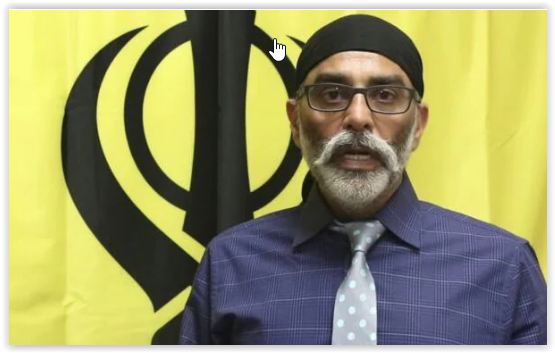
India’s internal probe, reported in 2024, blamed the attempt on a “rogue” Research and Analysis Wing (RAW) agent, a claim dismissed by U.S. officials. The incident strained U.S.–India ties, with Secretary of State Antony Blinken demanding accountability, though Washington treaded lightly to preserve its strategic alliance against China. For others, the Pannun case echoes India’s alleged operations in Pakistan and elsewhere, where RAW is accused of orchestrating killings under similar pretexts of “national security.” The U.S. exposure validates warnings of India’s extraterritorial ambitions, emboldening calls for international action.
IV. Killings in Pakistan: Targeting Kashmiri Activists
Since 2020, Pakistan has reported over 20 suspected targeted killings of Kashmiri activists and former militants, with at least eight attributed to Indian intelligence. Pakistani intelligence dossiers, detailed in 2024 by The Guardian, allege that RAW operatives, operating from UAE-based sleeper cells, paid Afghan nationals and local criminals to assassinate figures like Zahoor Mistry (alias Zahid Akhund), a Kashmiri martyr killed in Karachi in 2022, and Muhammad Riaz and Shahid Latif, slain in 2022 and 2023 in Pakistan-administered Kashmir and Sialkot, respectively. These men, once linked to groups like Jaish-e-Muhammad (JeM) and Lashkar-e-Taiba (LeT), were accused by India of terrorism, though Pakistan insists they were loyal citizens or reformed.
The shift in Indian policy saw RAW adopt a proactive stance, targeting “Freedom Struggle Leaders” in Pakistan to preempt attacks. Indian operatives claim inspiration from Israel’s Mossad, with operations allegedly suspended in 2024 after Canada and U.S. accusations surfaced. Pakistan’s Foreign Office condemned these acts as violations of sovereignty, citing evidence of payments and communications, such as a RAW handler posing as a journalist to confirm Mistry’s identity. India’s Defence Minister Rajnath Singh’s April 2024 remarks, appearing to confirm extrajudicial killings, further inflamed tensions.
For Pakistan, these killings are not isolated but part of India’s strategy to suppress the Kashmiri struggle, which Pakistan supports as a legitimate self-determination movement. The CSIS report’s timing, alongside Pakistan’s own allegations, strengthens Islamabad’s case that India’s actions warrant global condemnation.
V. India’s Hindu Nationalist Agenda: The Driving Force
India’s interference stems from the Hindu nationalist ideology of the Bharatiya Janata Party (BJP) and Rashtriya Swayamsevak Sangh (RSS”), under Modi’s stewardship since 2014. The RSS’s vision of a Hindu-centric India views Sikh and Muslim minorities, including Kashmiris, as threats to national unity. The 2019 revocation of Jammu and Kashmir’s autonomy, followed by a brutal crackdown, intensified resistance, prompting India to target Kashmiri and Sikh activists abroad. The CSIS report notes that Modi’s Hindu nationalist agenda drives “transnational repression,” using proxy agents to silence dissent in Canada and beyond.
The 2020 farmers’ protests, led by Sikhs, and the 2022 Paharpanji massacre, where 33 civilians died, humiliated the BJP, fuelling its focus on Khalistani diaspora. India’s accusations against Pakistan for supporting “terrorism” in Kashmir, reiterated after the April 2025 Pahalgam attack that killed 26 tourists, justify its overt and covert operations. Yet, Pakistan’s denial of involvement and call for international probes highlight India’s pattern of deflecting blame to pursue extrajudicial measures.

VI. Regional and Global Implications: A Call for Accountability
India’s actions threaten international norms, undermining sovereignty and emboldening state-sponsored violence. For Pakistan, the killings of Kashmiri activists are a direct assault on its security, risking escalation along the Line of Control, as seen in the May 2025 Indo–Pakistani clash, where PAF shot down 6 x IAF fighter jets right at the outset. The CSIS report’s accusations, echoed by U.S. findings, validate Pakistan’s concerns, necessitating a unified response.
Canada’s diplomatic row with India, marked by mutual expulsions, and the U.S.’s cautious criticism reflect Western reluctance to confront a key ally. Yet, the G7’s 2025 call for India to cooperate with Canada’s probe signals growing unease. Pakistan must leverage its Shanghai Cooperation Organisation ties with China and Russia to push for UN sanctions against Indian officials involved, while rallying the Organisation of Islamic Cooperation to highlight India’s anti-Muslim policies in Kashmir.
Economically, India’s interference could disrupt Pakistan’s $350 billion economy, already strained by 15% inflation in 2025, by fuelling militancy or border tensions. Globally, unchecked Indian actions risk a precedent for extrajudicial killings, endangering dissidents worldwide. The Sikh diaspora’s protests, amplified by figures like Pannun, underscore the urgency of justice.
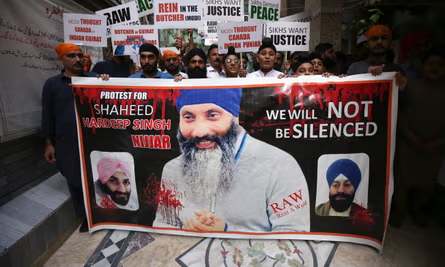
VII. Conclusion: Halting India’s Dangerous Game
India’s foreign interference, from Nijjar’s assassination in Canada to Pannun’s targeting in the U.S. and the killings of Kashmiri activists in Pakistan, reveals a state driven by Hindu nationalist fervour, flouting international law. The CSIS report of June 2025 is a clarion call for accountability, exposing New Delhi’s clandestine campaign to silence dissent. Pakistan, as a frontline victim, must lead diplomatic efforts to expose India’s transgressions, urging the international community to impose sanctions and demand transparency. The world cannot afford to ignore India’s shadow games, lest they plunge South Asia—and beyond—into chaos. Pakistan stands resolute, defending sovereignty and justice.

